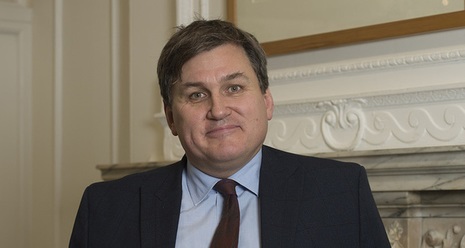A manifestation of the lack of trust is that colleges are one of the most regulated parts of the education system, writes David Hughes
Dear education secretary,
Congratulations on your appointment to the best job in the cabinet, and welcome to the further education sector.
As a supporter of your local college, you’ll already know about the fantastic things colleges do for millions of students every year and the impact they have on local communities and businesses.
Sadly, not everyone in power knows this, so I want to invite you to work with us to champion colleges in Whitehall and more widely.
Through your visits, references to colleges in speeches and the attention you give to post-16 education and skills, you will make a big difference to how colleges are perceived and ultimately to the funding that supports their work.
Building on that, though, there is a tougher challenge I want to engage you in.
The fundamental issue for colleges is that they are not respected and trusted enough in Whitehall and among politicians. This holds back colleges from the even bigger impact they could make.
Respect and trust take time to build, so I am not expecting any overnight changes, but it would be good to hear that you want the same shift in attitudes to prevail.
It would be good to hear that you want a shift in attitudes to prevail
One manifestation of this lack of trust is that colleges are one of the most regulated parts of the education system, subject to rules and regulations designed for schools, universities and for-profit providers; and yet they are none of those.
People often tell me that colleges are too complex and do too many things and that’s why it is difficult to understand them.
An odd critique, don’t you think?
Turn that on its head and you can see colleges as truly comprehensive, community-based, charitable institutions wholly focussed on helping people to get on in life; offering everyone and anyone support, learning, training, skills, education at all levels and across most subjects.
That’s a strength, not a problem. Isn’t it?
You’ll have experience of this yourself, like all visitors to a college who hear from students about their ambitions, talents and dedication and from staff with expertise, passion and hope for their students.

For me it’s as simple and compelling as that. Colleges are vital to every thriving community – for economic growth and for inclusion (whether we call it levelling up, social mobility, or social justice).
Yet a major part of your challenge will be to overcome poor understanding, low respect and low trust as well as 12 years of underfunding.
You’ll encounter this in your negotiations with the treasury and probably around the cabinet table.
We would love to work on it with you.
When it comes to the department for education, I am pleased to say there has been enormous progress in recent years.
Every week I work with officials who understand, respect and trust colleges and who, dare I say it, have become college champions.
Hundreds have seen that colleges are full of people who care about their work and about their students, and once you see that it is difficult not to love it.
Like every caring partner, the best way to show love is to celebrate, support and encourage them so that they have the confidence to use their talents to the utmost.
Wouldn’t that be a great way to work with colleges? Set them free and let them deliver.
Currently though, colleges have too many separate funding lines and programmes, all individually accounted for.
Too many instructions on what they can and cannot do, who they can and can’t help.
Too many funds they need to compete for and too many rules and regulations which get in the way.
So, as you consider where to invest your time and efforts, I hope that you will prioritise working with us to ensure colleges can deliver the economic growth that the new prime minister has promised.
I genuinely wish you well in this new role and I look forward to working with you closely.









Your thoughts